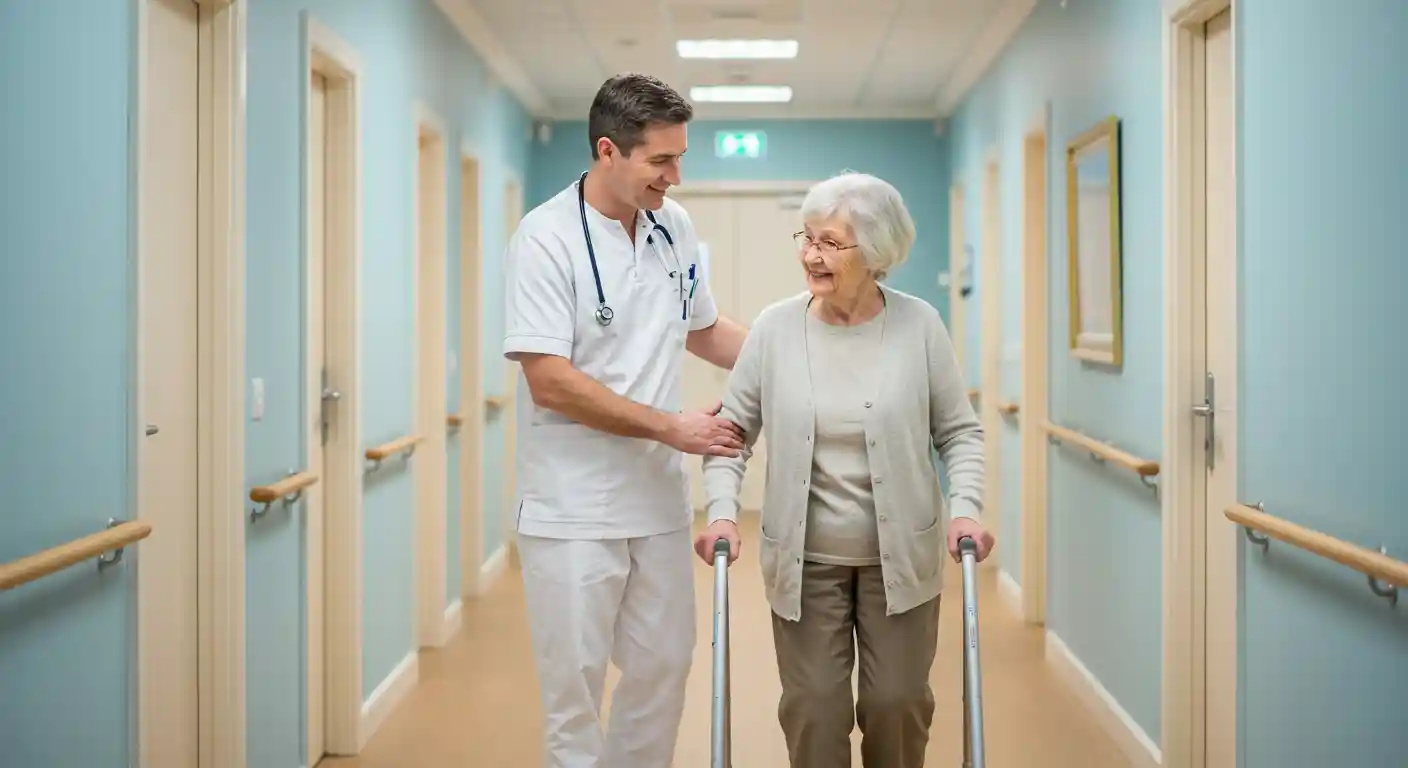Holistic Senior Care: Enhancing Emotional Well-Being and Physical Health in Aging Adults
Aging is a beautiful yet complex journey. As adults grow older, their emotional, physical, and cognitive needs evolve, making it crucial to provide them with comprehensive senior care that goes beyond just medical support. Holistic senior care is an approach that nurtures both the mind and body, ensuring that aging adults live fulfilling and healthy lives.
With the global senior population rising, the demand for holistic senior care has never been greater. According to the World Health Organization (WHO), by 2050, the number of people aged 60 and older will reach 2.1 billion. This statistic underscores the growing need for senior care solutions that address emotional well-being, physical health, and social connectivity.
In this article, we’ll explore how holistic senior care enhances emotional and physical health while providing practical insights, real-world case studies, and expert-backed strategies to improve the quality of life for aging adults.
Understanding Holistic Senior Care
Unlike traditional elderly care, which primarily focuses on medical support, holistic senior care takes a comprehensive approach by addressing emotional, mental, physical, and social well-being. It integrates modern healthcare practices with lifestyle modifications, ensuring that seniors receive the best possible support tailored to their needs.
Key Elements of Holistic Senior Care:
Physical Wellness: Regular exercise, proper nutrition, and health monitoring.
Emotional Support: Companionship, stress reduction, and mental well-being.
Social Connectivity: Community engagement, group activities, and purpose-driven interactions.
Cognitive Stimulation: Brain exercises, memory care, and learning opportunities.
A study by the National Institute on Aging (NIA) reveals that socially engaged seniors are 30% less likely to develop cognitive decline, highlighting the importance of holistic care in aging well.
Emotional Benefits of Holistic Senior Care
1. Combating Loneliness and Isolation
Loneliness is a silent killer among aging adults. According to the Centers for Disease Control and Prevention (CDC), nearly 25% of seniors over 65 experience social isolation, which can lead to depression, anxiety, and cognitive decline.
Solutions:
Senior community programs and group activities.
Pet therapy, art therapy, and music therapy to foster companionship.
Virtual connections through video calls and social media.
Case Study:
Mary, a 78-year-old widow, felt isolated after her husband’s passing. After joining a senior wellness community, she engaged in daily social activities, yoga, and storytelling sessions, significantly improving her emotional well-being.
2. Reducing Stress and Anxiety
Aging adults often experience stress due to health issues, financial concerns, or lack of independence. Holistic care integrates mindfulness techniques, relaxation exercises, and structured routines to promote emotional stability.
Expert Insight:
“Seniors who engage in mindfulness activities such as meditation, light yoga, and music therapy show a 40% decrease in stress-related disorders,” says Dr. Emily Carter, a geriatric psychologist.
3. Encouraging Purpose and Meaning in Life
Many seniors struggle with finding purpose after retirement. Engaging in hobbies, volunteering, and lifelong learning helps them regain motivation.
Examples of Purposeful Activities:
Community volunteering (mentoring younger generations).
Engaging in creative arts like painting and music.
Learning new skills through online courses for seniors.
4. Cognitive Health and Mental Stimulation
Keeping the brain active is crucial for preventing dementia and cognitive decline. Studies by the Alzheimer’s Association show that seniors who engage in mental exercises are 35% less likely to develop Alzheimer’s.
Brain-Stimulating Activities:
Crossword puzzles, Sudoku, and memory games.
Reading, storytelling, and lifelong learning programs.
Participating in book clubs and discussion groups.
Physical Benefits of Holistic Senior Care
1. Enhancing Mobility and Strength
Physical inactivity can lead to muscle loss, joint pain, and an increased risk of falls. According to the CDC, nearly 36 million falls occur among older adults every year, making mobility a critical aspect of holistic senior care.
Ways to Improve Mobility:
Low-impact exercises (walking, swimming, chair yoga).
Strength training for maintaining muscle mass.
Balance and flexibility training to prevent falls.
2. Proper Nutrition and Meal Planning
Aging adults require a nutrient-dense diet to maintain energy levels and overall health.
Essential Nutrients for Seniors:
Omega-3 fatty acids (brain health).
Calcium and Vitamin D (bone strength).
Fiber-rich foods (digestive health).
Nutritionist Insight:
“A well-balanced diet reduces the risk of chronic diseases by 40% and improves longevity,” says Dr. Lisa Reynolds, a geriatric nutritionist.
3. Medication Management and Health Monitoring
Many seniors take multiple medications, making adherence challenging. Proper medication management ensures they take the right doses at the right time.
Modern Solutions:
AI-powered pill dispensers to track medication schedules.
Wearable health devices for real-time monitoring of heart rate and oxygen levels.
Telemedicine for remote doctor consultations.
4. Assistance with Daily Living Activities (ADLs)
As seniors age, daily activities such as bathing, dressing, and meal preparation may become difficult. Holistic care services provide personalized support while encouraging independence.
The Future of Holistic Senior Care
1. Technology and Innovation in Elderly Care
The future of senior care is tech-driven, with AI, wearable devices, and smart home systems enhancing safety and well-being.
AI-powered chatbots for companionship.
Smart home monitoring for fall detection and emergency alerts.
Telehealth advancements for easy access to medical professionals.
2. Government Policies and Financial Support
Governments worldwide are introducing better healthcare policies for aging adults. Programs such as Medicare, Medicaid, and veteran assistance provide financial relief to seniors in need.
Nonprofits and community organizations helping seniors access affordable care.
Insurance plans covering holistic senior care services.
Conclusion: Why Holistic Senior Care Matters
Holistic senior care is more than just healthcare—it’s about ensuring dignity, happiness, and longevity for aging adults. By focusing on emotional well-being, physical health, and social engagement, seniors can enjoy a better quality of life while maintaining their independence.
Families must prioritize comprehensive care solutions that go beyond basic assistance, providing aging adults with the support, love, and enrichment they deserve.

